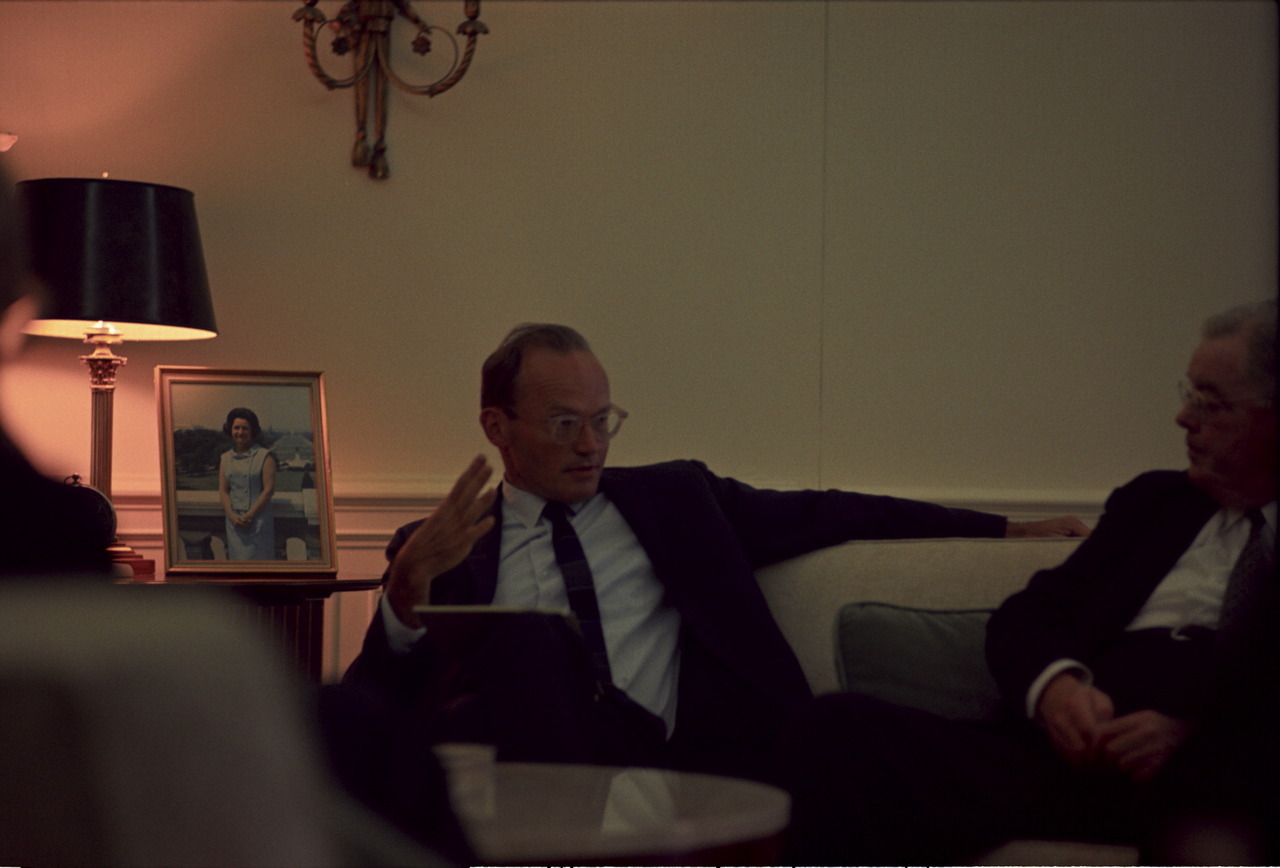December 14, 1965, 7:45 p.m. National Security Advisor McGeorge Bundy lays out the arguments for and against a proposed temporary ceasefire in Vietnam:
“The possible advantages of a cease-fire are these:
1. To the degree that it is respected by the other side, our casualties stop;
2. We get a chance to emphasize peaceful actions and to go about the work of relief and reconstruction, and other works of peace. If the other side allowed such free movement, we should be able to make some money in the countryside. If they did not, it would be plainly their fault.
3. If the cease-fire is rejected—which is quite possible—the international political rewards are very great indeed.
4. If the cease-fire is accepted, the chances of turning the whole business toward the peace table are considerably greater than they would be with a pause.
The disadvantages a cease-fire offers are also serious:
1. The Chiefs and Lodge and Westmoreland would all be unanimously and very strongly opposed. They would use some or all of the arguments that follow.
2. The whole object of our deployment is to get the initiative against the Viet Cong. A cease-fire would hand it back to them and allow them to rest, refit, regroup, retrain, and redouble their resistance after the fighting begins again.
3. A cease-fire would gravely shake the morale of the GVN and of the people in Saigon. It would also reopen the whole question of U.S. determination, doubts of which were so near the center of the crisis in morale a year ago.
4. A cease-fire offer could convey a very bad signal of apparent weakness to Hanoi. (I don’t quite believe in this one myself because if we ourselves use a cease-fire to move around the countryside, we can make things very tough for Hanoi and the Viet Cong both.)
5. If the South Vietnamese stop fighting, it may be very hard to get them to start again.”
Photo: Bundy in the Oval Office, 1967.
(Source: history.state.gov)
 jkmhoffman reblogged this from lbjlibrary
jkmhoffman reblogged this from lbjlibrary klappersacks liked this
7dials liked this
americanguide liked this
ben1783-blog liked this
mountains-life-bros-blog-blog liked this
lbjlibrary posted this

